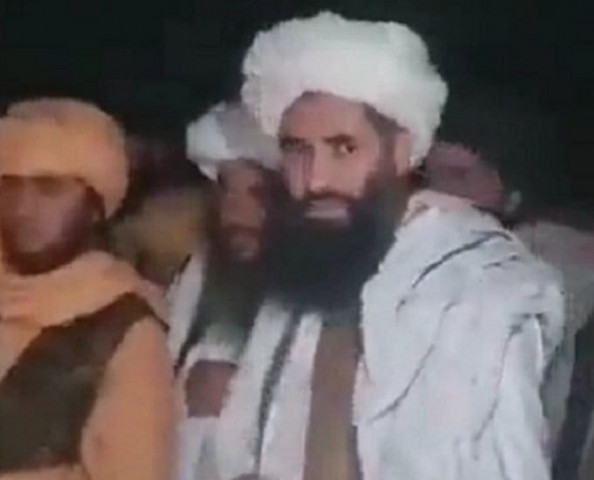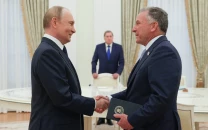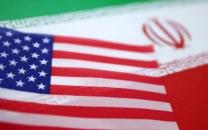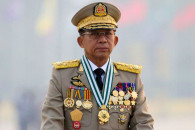Taliban supreme leader makes first public appearance
Mullah Haibatullah addressed supporters in southern city of Kandahar

Taliban supreme leader Mullah Haibatullah Akhundzada addressed supporters in the southern city of Kandahar, officials announced Sunday, his first public appearance since taking control of the group in 2016.
An excerpt from the leader's speech was also tweeted out. However, the tweet clarified that the reason the whole speech could not be shared was because it had not been recorded properly.
د عاليقدر أميرالمومنين شيخ صاحب د وينا يوه برخه (دعاء)
— Qari Younas Rashid (@QariYunusRashid) October 30, 2021
یادونه: د اميرالمومنين شيخ صاحب حفظه الله د ټولي وينا چي شاوخوا لس دقيقې کېږي د نه نشر علت دادی چي په ښه توګه نه ده ثبت شوې، دغه لنډه برخه يې د قدرمنو دوستانو په مکرره غوښتنه خپروم. pic.twitter.com/GDkfA528um
Akhundzada has been the spiritual chief of the movement since 2016 but has remained a reclusive figure, even after his group seized power in Afghanistan in August.
His low profile has fed speculation about his role in the new Taliban government -- and even rumours of his death.
On Saturday, he visited the Darul Uloom Hakimah madrassa to "speak to his brave soldiers and disciples", according to Taliban officials. In it, Akhundzada -- referred to as "Amirul Momineen", or commander of the faithful -- gives a religious message.
The speech did not touch on political organisation, but sought God's blessing for the Taliban leadership.
READ Afghan Taliban fighters shoot two dead over wedding music
During his address, the Taliban supreme leader asked his followers to maintain accountability among their ranks and avoid anything not allowed by Quran and Sharia.
He prayed for the success of the Islamic Emirate and the newly installed Taliban government. The audio message further comprised guidelines for his followers and the Taliban and it is expected that the video of the function will be released soon.

Akhundzada was tasked with unifying a Taliban movement that briefly fractured during the bitter power struggle after Akhtar's assassination.
Widely believed to have been selected to serve more as a spiritual figurehead than a military commander, Akhundzada's statements will fuel speculation that he now plans to take a more central role in leading the new government.
Unifying figure
Akhundzada rose from low-profile religious figure to leader of the Taliban in a swift transition of power after a 2016 US drone strike killed his predecessor, Mullah Akhtar Mansour.
After being appointed leader, Akhundzada secured the backing of Al-Qaeda chief Ayman al-Zawahiri, who showered the cleric with praise -- calling him "the emir of the faithful".
This endorsement by Osama bin Laden's heir helped seal his jihadist credentials with the Taliban's long-time allies.
Akhundzada was tasked with unifying a Taliban movement that briefly fractured during the bitter power struggle after Akhtar's assassination, and the revelation that the leadership had hidden the death of their founder Mullah Omar for years.
His public profile has largely been limited to the release of messages during Islamic holidays, and Akhundzada is believed to spend most of his time in Kandahar, the main city in the Taliban's southern Afghan heartland.
His last message was on September 7, when he told the newly appointed Taliban government in Kabul to uphold sharia law as they govern Afghanistan.
Last week, Mullah Yussef Wafa, the Taliban governor of Kandahar and a close ally of Akhundzada, told AFP he was in regular contact with his mysterious chief.
"We have regular meetings with him about the control of the situation in Afghanistan and how to make a good government," he said in an interview.
"As he is our teacher and everyone's teacher. We are trying to learn something from him," he added.
"He gives advice to every leader of Islamic Emirate of Afghanistan and we are following his rules, advice, and if we have a progressive government in the future it's because of his advice."



















COMMENTS
Comments are moderated and generally will be posted if they are on-topic and not abusive.
For more information, please see our Comments FAQ